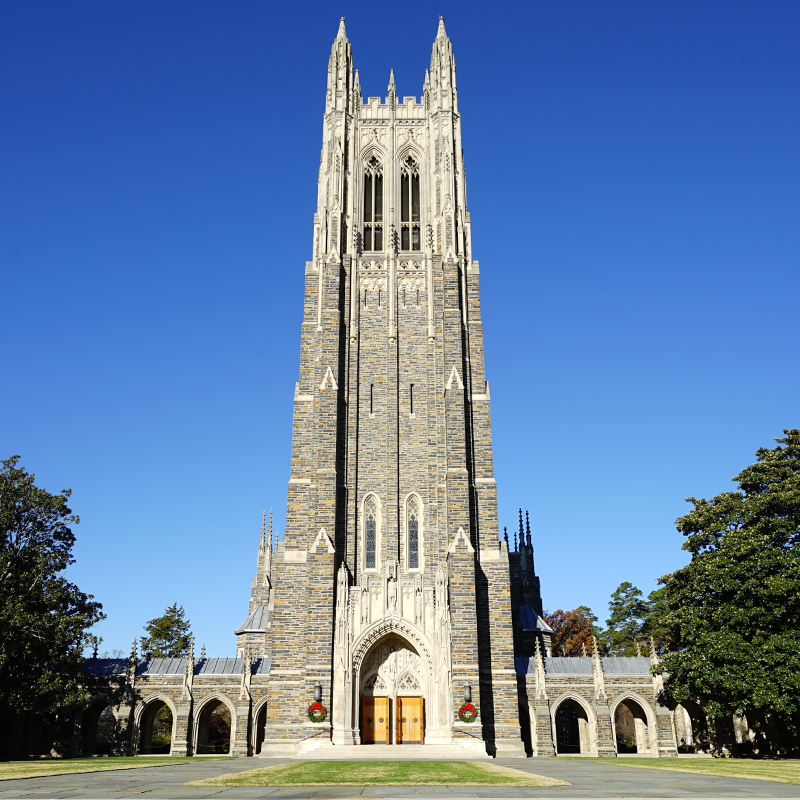
The proposed settlement in a university 403(b) excessive fee case has received preliminary approval from a federal judge.
Last month Judge Catherine C. Eagles of the U.S. District Court for the Middle District of North Carolina noted that, “while class counsel have adequately addressed many of the factors relevant to the Court’s decision to preliminarily approve the proposed settlement, they did not substantively address the adequacy of the proposed settlement,” going on to explain that, “Before ruling, the Court requires additional information.”
That came in response to the announced terms of the settlement in the case of Clark v. Duke University – a $10,650,000 cash settlement and a series of changes in plan administration.
The plan fiduciaries here, as in most of these cases, had been charged with a series of fiduciary breaches, including providing “…a dizzying array of duplicative funds in the same investment style,” relying on the services of four recordkeepers, carrying actively managed funds on its plan menu when passives were available, having recordkeeping charges that were asset-based, rather than per participant, and not using its status as a “jumbo” plan to negotiate a better deal for plan participants, among other things.
Not-Quite Done Deal
Judge Eagles has now signed off on the deal (Clark v. Duke Univ., M.D.N.C., No. 1:16-cv-01044-CCE-LPA, 2/7/19) – a week after ordering the parties to better justify the settlement amount. At that time she said she expected to receive a supplemental briefing from the parties no later than Feb. 15, 2019, “though earlier would be appreciated.” In fact, she noted that if those supplemental materials were filed by Feb. 4, “the Court will endeavor to rule on the motion for preliminary approval by February 8” – a timeline that the parties have apparently taken to heart.
That said, things are not quite done with the case. Judge Eagles directed Class Counsel (Schlichter Bogard & Denton LLP) to, no later than 60 days before the Fairness Hearing, to cause the Settlement Notice to be published on the Settlement Website, as well as the motion papers and other filings “relevant to the fairness, reasonableness, and adequacy of the Settlement Agreement.”
Anyone who objects (“or his, her, or its counsel (if any)”) must serve copies of the objection(s) on the attorneys in the case, and “file it with the Court by no later than thirty (30) calendar days before the date of the Fairness Hearing” – or forever hold their peace.
That hearing is scheduled at the U.S. District Court for the Middle District of North Carolina at 10:00 a.m. on June 18, 2019, to determine, among other issues:
- whether the Court should approve the Settlement Agreement as fair, reasonable, and adequate;
- whether the parties executed the Settlement Notice and notice methodology as directed by this Court;
- whether the Court should approve the motion for attorney’s fees and costs to be filed by Class Counsel;
- whether the Court should approve an amount of compensation to Class Representatives; and
- whether the Court should approve for payment Administrative Expenses specified in the Settlement Agreement and requested by the Settling Parties from the Gross Settlement Amount.
A rough estimate based on the settlement agreement’s detail suggests that the approximately 40,000 participants in the class could receive about $150 each.
Still to Come
The Duke suit was one of the first in the August 2016 flurry of filings by the law firm of Schlichter, Bogard & Denton.
And while at least 20 universities have been sued over the fees and investment options in their retirement plans since 2016, only one other settlement has been announced: last May the plaintiffs and the University of Chicago entered into a class action settlement for a $6.5 million cash payment and changes to the university’s $3 billion plan.
On the other hand, St. Louis-based Washington University, New York University, the University of Pennsylvania and Northwestern University have prevailed in making their cases in court.
- Log in to post comments
